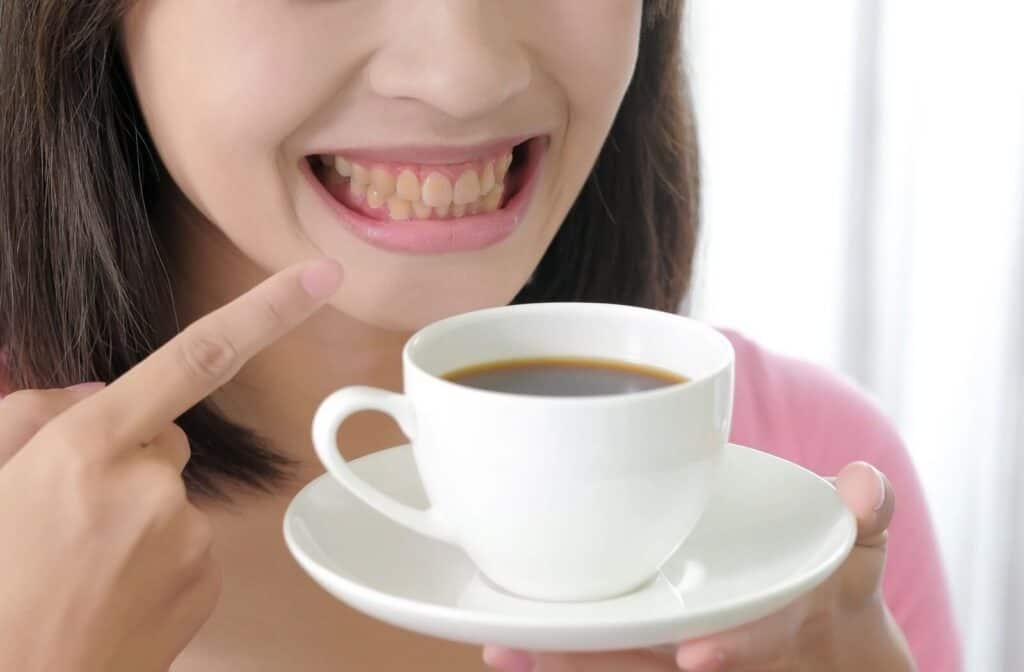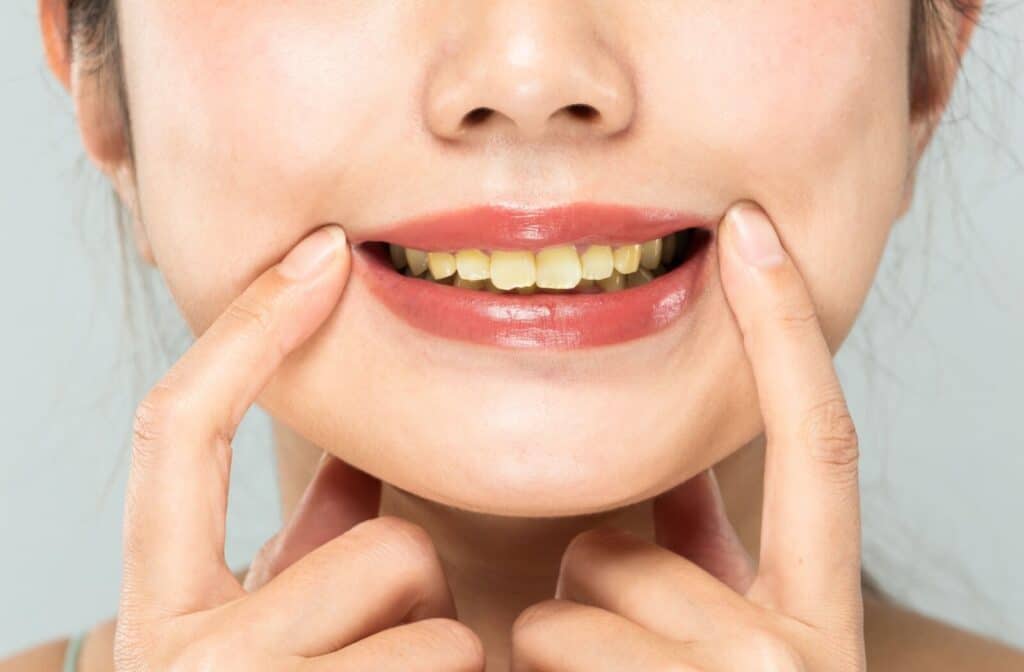Are Yellow Teeth a Sign of Poor Oral Health?
When it comes to dental health, one common concern among people is the colour of their teeth. With a wealth of images celebrating pearly whites on social media and in advertisements, it is no wonder that yellow teeth can be a source of embarrassment or worry. But beyond aesthetic considerations, one might wonder, do yellow teeth actually indicate poor oral health?
Yellow teeth are not always an indication of poor oral health; they might also be subjective. But, it is crucial to maintain a healthy oral hygiene regimen, which includes flossing daily, brushing twice daily, and getting regular dental exams.
Understanding Tooth Colour
Numerous factors, both internal and external, might affect the colour of our teeth. Fundamentally, dentin—the tissue under the enamel that ranges in colour from pale yellow to light gray—determines the inherent colour of teeth.
Ways Dentin Impacts Tooth Colour
This implies that teeth that are slightly yellow may really be the normal, healthy colour for some people. The semi-transparent enamel covering the dentin can impact how we perceive colour overall, depending on how thick it is. Therefore, thinner enamel can allow more yellow dentin to peek through.
Factors That May Influence Tooth Colour
Environmental exposures and lifestyle decisions are examples of external influences. Over time, teeth can become stained by various foods and beverages, including red wine, tea, coffee, and some fruits. Smoking is another significant cause of tooth discolouration, which can turn teeth yellow or even brown.
Causes of Yellow Teeth
Teeth can be yellowed for several reasons, making it a common and often multifactorial issue. Here we touch on some of these causes:
Lifestyle Factors

Lifestyle factors can play a significant role in the colour of our teeth, with various habits and dietary choices contributing to yellow teeth over time:
- Diet: Teeth can get visibly stained by consuming foods and drinks high in pigment, like red wine, coffee, tea, and some fruits like berries. These materials include chromogens, highly pigmented chemicals that stick to dental enamel and discolour it.
- Tobacco use: One of the main reasons for tooth discolouration is tobacco usage, including smoking. Tar and nicotine, found in tobacco, can leave teeth with stains that are difficult to remove. Over time, these stains may seep deeply into the enamel, making removal challenging.
- Poor oral hygiene: Poor oral hygiene practices, such as not brushing or flossing enough, can accumulate plaque and tartar on teeth. Enamel can turn yellow due to the growth of bacteria and the attraction of stains by plaque.
- Acidic foods and beverages: Over time, dental enamel erosion can occur from regularly consuming acidic foods and beverages, including citrus fruits, sodas, and some sports drinks. Due to this degradation, the yellow dentin beneath the enamel may become more apparent.
Dental Health
The state of your oral health may also play a role in the colour of your teeth.
- Tartar buildup and decay: Teeth that are more yellow or brown can be caused by dental decay and tartar accumulation. The demineralization of enamel by acids produced by plaque-forming bacteria can cause decay. This might cause serious discolouration if left untreated.
- Enamel thinning: Teeth’s enamel may thin or wear away with age or certain dental disorders, exposing more of the dentin underneath. Because dentin is naturally yellow, teeth may appear yellowish.
- Fluorosis: Dental fluorosis can result from excessive fluoride exposure in youth when teeth are still growing. Teeth streaks or spots, ranging from light discolouration to deeper stains and surface abnormalities, can indicate dental fluorosis.
- Medications/treatments: When children’s teeth are still growing, certain drugs, especially some antibiotics, might cause discolouration of the teeth. Head and neck cancer treatments, including radiation and chemotherapy, may also impact your teeth’s colour.
Other Factors
Beyond lifestyle choices and dental health conditions, several other factors can contribute to the yellowing of teeth; these can include:
- Age: Older adults may naturally have more yellow teeth as enamel wears down. This is normal aging but may cause teeth discolouration over time.
- Medical conditions: Certain medical conditions, such as diseases that affect the liver, can cause teeth to turn yellow. Conditions that prevent typical enamel formation in children can also affect teeth’ colour as they age.
- Genetics: The thickness of enamel can vary from person to person. Some people naturally have more yellow or grayish tooth enamel due to hereditary factors.
Whitening & Oral Health
Many individuals turn to teeth whitening solutions to combat tooth yellowing. While in-office and at-home bleaching can lighten tooth colour, it is important to understand that whiter teeth do not necessarily equate to healthier teeth. Overusing whitening treatments can damage enamel and potentially lead to increased sensitivity or tooth decay.
Holding off on the Bleach
Furthermore, yellow teeth caused by enamel erosion cannot be whitened through bleaching. Hence, it is essential to consult with a dental professional before starting any whitening treatment to make sure it is appropriate and not detrimental to your oral health.
The Bottom Line
While yellow teeth alone do not diagnose oral health status, they can sometimes indicate the need for improved dental care or a sign to get professional advice. Remember, healthy teeth can shine regardless of shade, and preserving your oral health is paramount for an infectious, confident smile.
For more information about oral hygiene and teeth whitening services, we at South Ancaster Family Dental can help you take care of your oral health. Book an appointment with us today!

